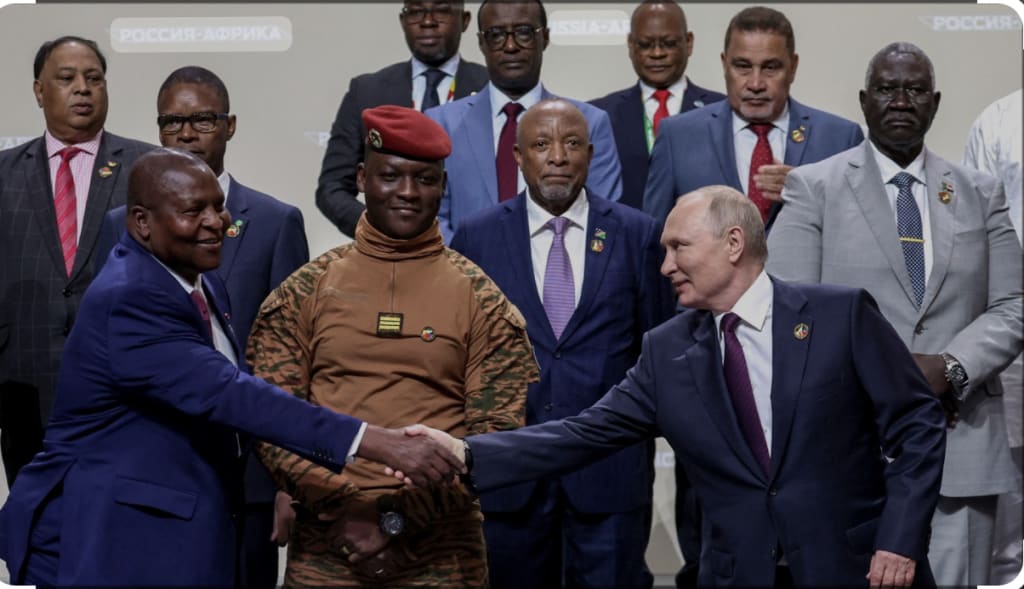The Heat from the Ural
The impact on West Africa of the Russo-Ukrainian War

On the 24 February, Russia began bombing campaigns in Leviv and Kiev as part of its invasion of Ukraine. NATO and the West condemned Russia’s unilateral action, as international attention was shifted away from the impact of the COVID-19 pandemic. The war is only a month old, but its impact has spilled out world over. Peru has had demonstrations against rising fuel. Bangladesh and Sri Lanka also had series of demonstrations which forced their government to proffer power sharing deals with opposition leaders.
However, arguably the hardest hit world region has been Africa, especially West Africa. The continent’s economy is already recovering from the shock of the COVID-19 pandemic and, in places such as Nigeria, the deleterious impact of insurgencies and rising criminality. This article explores why this is the case, and the impact this is likely to have on African politics in the coming months.
All about oil
Sanctions on Russia and supply chain disruptions have driven up commodity and oil prices, and in turn inflation, causing spiralling crude oil prices for governments and consumers. Since Russia’s invasion of Ukraine, the price of Brent crude has jumped to $110/bl, which represent a price jump of more than 80% in just 12 months.
This has hit West Africa particularly hard because up to 35% of its refined oil is import from Russia. In the last week alone, Sierra Leone, for instance experienced 14% increase in the price of petrol as the price spiked from $0.9 a litre to $1.5.
Heightened energy prices have been felt most severely in skyrocketing transport and utilities costs, including electricity, gas and other fuels like kerosene and paraffin. Against this backdrop, Nigeria’s aviation industry risks grinding to a halt because of a lack of fuel to refill bone-dry planes. In Sierra Leone, the Bike Riders Union (BRU) and motorbike taxi drivers have held strikes to vent their anger at escalating fuel costs and shortages.
From fuel to food
Fuel crises have been compounded by problems with the region’s food supply. A new report by FAO has warned that 40 million may go hungry in West Africa if nothing is done, because these states import 30%-50% of their wheat and corn from Russia and Ukraine.
Along with previous challenges, fresh disruption has left 27 million people in West Africa in a state of hunger and this number is set to increase by 11 million in the next one year. Thus, nearly 40 million West African could be faced with acute hunger and food shortages according to the Cadre Harmonise March 2022 report. The number of children suffering from acute malnourishment has also gone up across sub-Saharan Africa, from 4.9 million in 2021 to 6.3 million in 2022, according to the UN-FAO.
These negative trends have been exacerbated by climate related droughts and floods, which together with conflict and instability have forced millions of people off their land, pushing them into poverty. In Sierra Leone today, 4.7 million people do not have enough food to eat in a population of about 8 million. Whilst nearly 3.8 million are moderately food insecure, around a million are severely food secure according to the WFP Country Report 2021. Worse still, food insecurity increases everyday, with over half a million people added to the total since the start of 2022.
Mining the depths
The mining industry is also struggling to cope with the impact of the historic sanctions slapped on Russian banks and capital by Washington, Brussels and London. Sanctions have left Russian mining firms struggling to transfer capital and transport their raw materials. The situation will become even more challenging if European Union adopts a proposal to ban Russian ships from navigating European waters and using European seaports.
Again, these developments represent a significant economic loss to West African countries who generate considerable revenue s from mining raw materials. Already, the Russian mining group Rusal – controlled by Oleg Deripaska – is struggling to transport the bauxite it produces in Guinea to Russia. The private Russian energy giant Lukoil, which is reported to have projects in Cameroon, Ghana and Nigeria, is also bracing itself for significant economic difficulties.
Aid displacement
The need to deal with the repercussions of the Russo-Ukraine war may also lead to essential resources being diverted away from the African continent. The International Rescue Committee (IRC) notes that 13% of the $45 million in the humanitarian aid pledged to sub-Saharan Africa has been diverted to take care of the 11 million displaced Ukrainian, including 4 million refugees who have fled the country already. Russia which normally sends $50 million a year to West Africa in the form of foreign aid has also diverted funds towards its war effort.
The IRC notes that, “decease in commitment by donors for West Africa, will see further cuts to critical humanitarian assistance which will cost lives”
The combined effect of higher oil prices, lower food availability and aid cuts is likely to be profound. The region may see damaging stagflation, rising poverty, and with it a growing number of political protests. In turn, this has the potential to destabilise sitting governments – whether democratic or authoritarian.
Short-term, the region’s economic partners need to recognise that by focussing to such a great extent on the crisis in Ukraine they risk creating a further crisis in Africa, and significantly increasing the aid and support they offer to the region. Long-term, these challenges will only be overcome if West African countries diversify their economies, modernize and improve the agricultural sector, and start manufacturing their raw materials.
About the Creator
Enjoyed the story? Support the Creator.
Subscribe for free to receive all their stories in your feed. You could also pledge your support or give them a one-off tip, letting them know you appreciate their work.





Comments
There are no comments for this story
Be the first to respond and start the conversation.